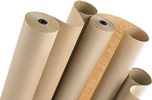
The global market for rheumatoid arthritis treatments is expected to grow at a CAGR of...
Learn More
Our consulting solutions address company specific challenges with respect to micro environment...
Learn More
Organizations frequently need day-today research guidancein order to gain strategic...
Learn More
Exploring different areas of market research and market analysis is a key factor...
Learn MoreAcute Market Reports presents the most extensive global business research services across industries. Our research studies focus on potential outcomes, benefits, and risks associated with each market segment across geographies. Having served our global clients for more than 10 years, our prime priority is to enable our clients in making well-informed business decisions through a data-driven, analytical, and uncomplicated research approach.
We provide access to the world's most comprehensive, analytical, and updated business intelligence services and solutions.




The kraft paper market is expected to grow at a CAGR of 3.9% during the forecast period of 2025 to 2033, driven by sustainability, basis weight versatility, and the rising demand for specialty kraft paper. Challenges related to raw material price flu...
Read More
The marine fleet management software market is expected to grow at a CAGR of 11.5% during the forecast period of 2025 to 2033, driven by the increasing need for efficient fleet operations and the adoption of advanced technologies within the maritime ...
Read More
The anal fistula treatment market is expected to grow at a CAGR of 4% during the forecast period of 2025 to 2033, driven by the growing adoption of non-surgical treatments, advancements in surgical techniques, and the increasing incidence rates of an...
Read More




